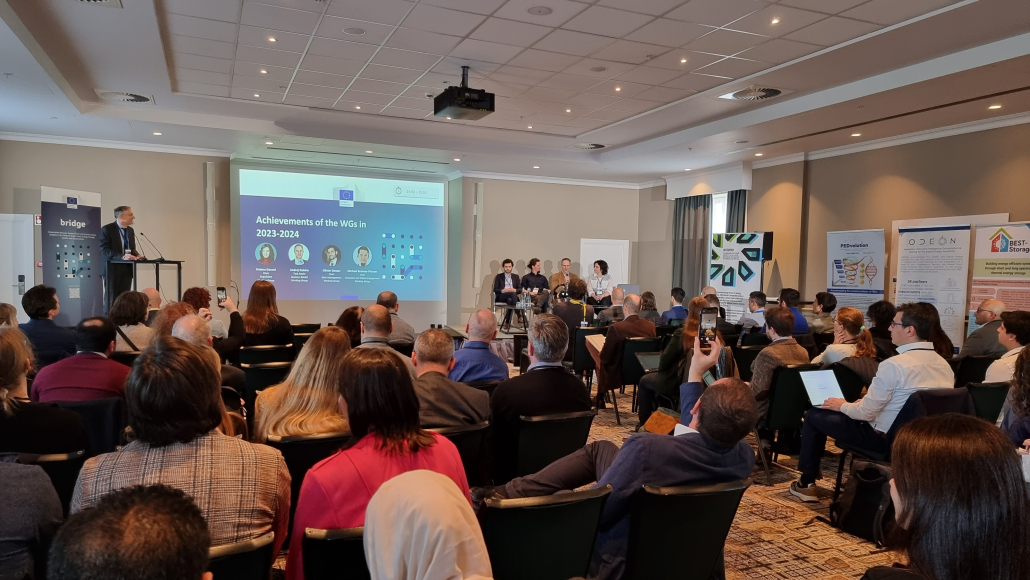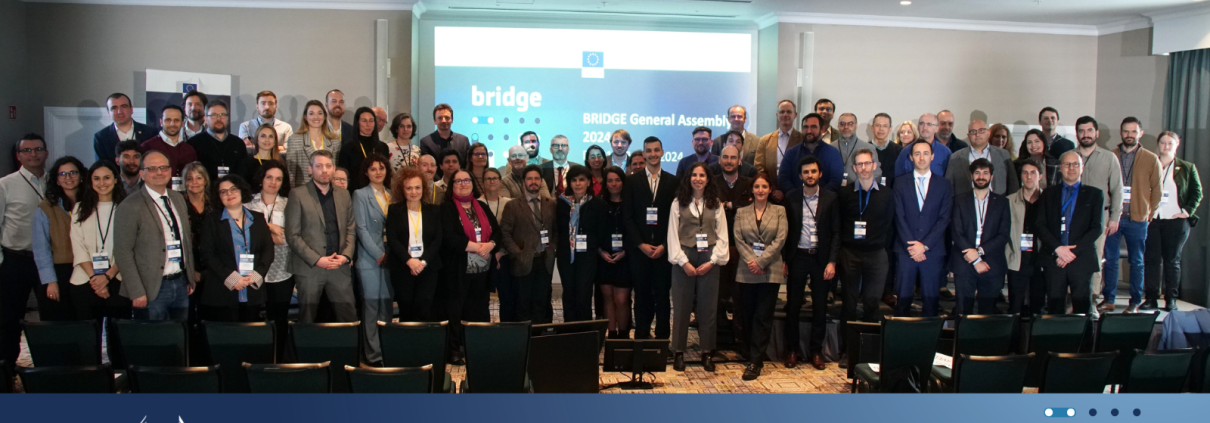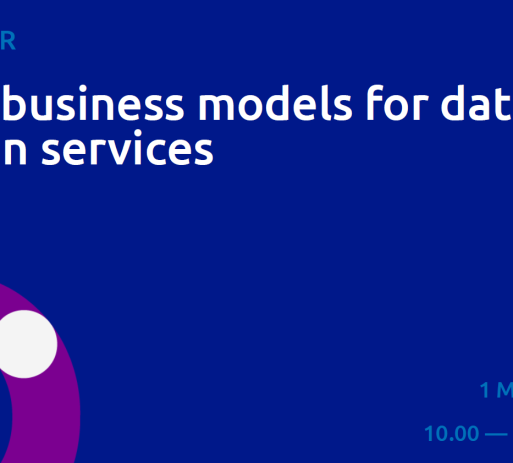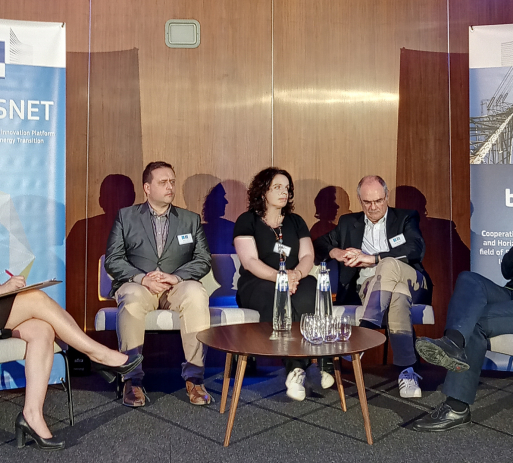BRIDGE General Assembly 2024
This week, on 9 and 10 April, the European Commission’s BRIDGE General Assembly brought together a wide range of stakeholders from the energy sector to share experiences, discuss achievements, and lay the foundations for future collaborations. DATA CELLAR, a leading project in the field of energy data spaces, was one of the participants.
What is BRIDGE?
The European Commission’s BRIDGE initiative acts as a hub for several Horizon 2020 and Horizon Europe initiatives with a focus on Smart Grids, Energy Storage, Islands, and Digitalisation.
BRIDGE now has 190 projects under its umbrella, of which 174 are active. By tackling multidisciplinary problems that arise in demonstration projects, it fosters continuous knowledge exchange between participants and opens the door to future innovation. The program promotes cross-sectoral collaboration and aims to link policy objectives with research and innovation endeavors by bringing together researchers, industry representatives, and policy makers.
The BRIDGE 2024 General Assembly
The two-day event was filled with informative sessions and interactive discussions that gave participants a broad picture of the achievements and challenges encountered by the BRIDGE ecosystem projects.
Vincent Berrutto, Head of Unit at the European Commission, and representatives from PwC welcomed the participants on the first day, highlighting BRIDGE as a platform for leveraging project synergies and making the collective voice heard by policymakers, industry and stakeholders. This was followed by a policy update session including updates on the EU Action Plan for grids, the Network code on demand response, and the Net Zero Industry Act, presented by DG ENER representatives. A plenary session highlighted the 2023-2024 achievements of the four BRIDGE Working Groups—Regulation, Business Models, Data Management, and Consumer and Citizen.
A demonstration of six completed BRIDGE projects—Platone, OneNet, Trinity, X-Flex, EUniversal, and Ebalance-plus—continued the day. The impact of the projects was described, as well as the results and KERs achieved by the projects and the benefits of BRIDGE. Finally, through an interactive session, different questions were raised which revealed that Energy Data Spaces, which are at the core of DATA CELLAR, are among the most relevant topics in BRIDGE for 2024.
The second day started with a policy updates session from DG CNECT and DG ENER. This highlighted the European Data Strategy, which includes a cross-sectoral legislative framework including the Data Governance Act and the Data Act, which entry into force was in January 2024, to achieve common European data spaces.
The Data Act aims to provide better access to IoT data, tackle contractual unfairness, make business data available for the common good, switch between cloud services, and facilitate data flows through technical standards and interoperability, which is essential for dataspaces standardisation. The Data Act will unlock the potential of the EU’s industrial data by creating data-based business opportunities; empower individuals and companies through increased transparency and control as well as better decisions over data; deliver better and more efficient public services and policies; and it will facilitate switching for cloud users through interoperability.
Additionally, four parallel sessions took place during the day drawing conclusions from the achievements of the last year in the different working groups of BRIDGE as well as the objectives and next activities for 2024, in which DATA CELLAR is involved.
Key outcomes from the BRIDGE Working Groups
In the Regulation working group, lessons learned from 2023 highlighted the importance of consumer-centricity and the complexity of market design and sector integration. The group aims to strengthen synergies and accelerate interactions between BRIDGE partners.
The Business Models working group recognises the importance of supporting projects at each stage of their activities, standardising the quantification of business plans and helping them to identify how to use data spaces. The group intends to provide tailored support to projects, foster market links and share best practices.
In the realm of Data Management, the readiness of a use cases repository was emphasised. The group remains committed to implementation support, dissemination through multiple channels, and the promotion of interoperability among home appliances.
Simultaneously, the Consumer and Citizen Engagement working group supports the citizens and consumers perspective in advocating for sustainable and inclusive solutions. The need for standardised engagement methodologies was underlined, and the group aims to increase its collaboration with relevant stakeholders and enhance the accessibility of information.






